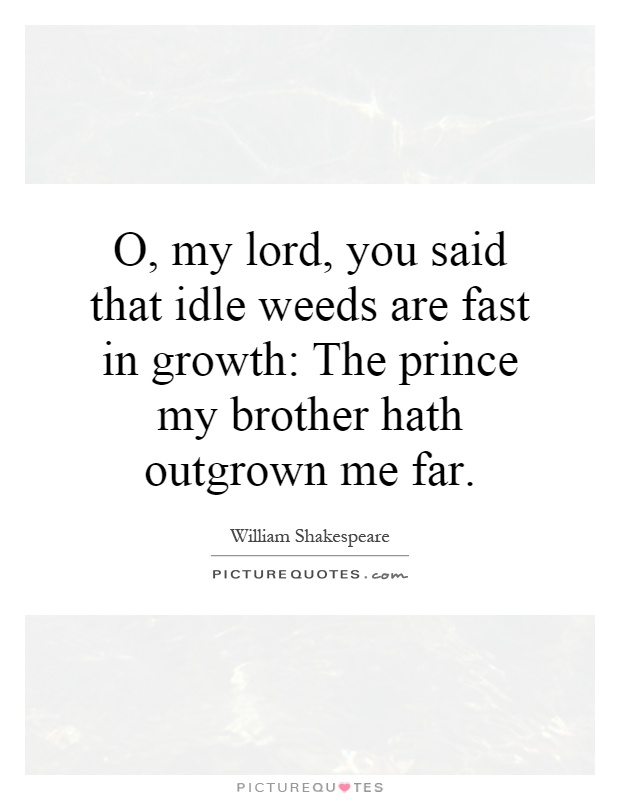O, my lord, you said that idle weeds are fast in growth: The prince my brother hath outgrown me far

O, my lord, you said that idle weeds are fast in growth: The prince my brother hath outgrown me far
In William Shakespeare's play, "Hamlet," the character of Ophelia speaks these words to her father, Polonius, expressing her concern about Hamlet's behavior and her own feelings of being left behind by her brother, Laertes. The quote reflects Ophelia's sense of unease and confusion as she navigates the complex relationships and power dynamics at the Danish court.When Ophelia says, "O, my lord, you said that idle weeds are fast in growth: The prince my brother hath outgrown me far," she is referring to Polonius's earlier advice about the dangers of idleness and neglect. In this context, Ophelia is comparing herself to Hamlet and feeling inadequate in comparison to his rapid growth and development. She is aware of the social hierarchy and the expectations placed upon her as a woman in the court, and she fears being left behind or overlooked.
Ophelia's words also reveal her deep affection for her brother, Laertes, and her desire to be seen as his equal. She is aware of the privileges and opportunities that he enjoys as a man, and she longs to be recognized and valued in the same way. Ophelia's sense of inferiority and insecurity is further compounded by her complicated relationship with Hamlet, whose erratic behavior and emotional turmoil have left her feeling confused and vulnerable.
The quote also highlights the theme of growth and transformation in "Hamlet," as characters grapple with their own identities and roles within the larger political and social context. Ophelia's words serve as a poignant reminder of the pressures and expectations that weigh heavily on the characters in the play, as they struggle to find their place in a world that is constantly changing and evolving.
Overall, Ophelia's quote captures the sense of uncertainty and instability that pervades "Hamlet," as characters grapple with their own desires and fears in the face of power and authority. It is a poignant reflection on the complexities of human relationships and the challenges of navigating the treacherous waters of court politics and personal ambition.












 Friendship Quotes
Friendship Quotes Love Quotes
Love Quotes Life Quotes
Life Quotes Funny Quotes
Funny Quotes Motivational Quotes
Motivational Quotes Inspirational Quotes
Inspirational Quotes